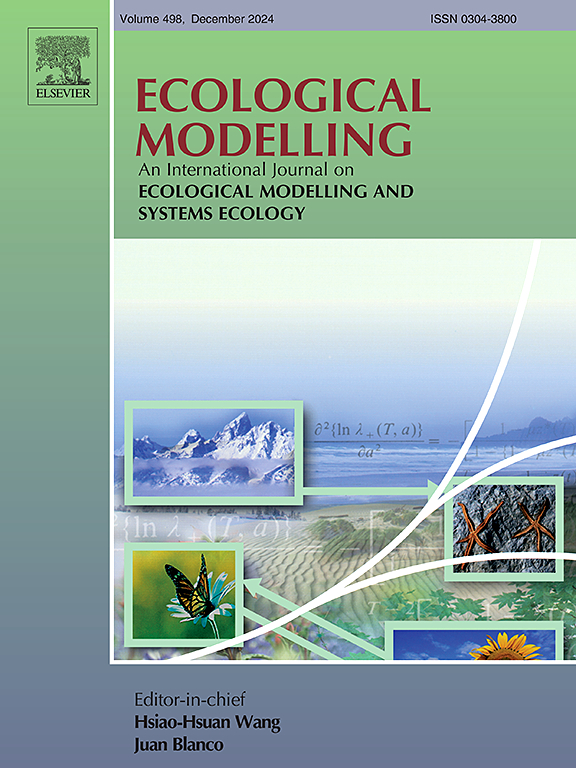A protocol for implementing parameter sensitivity analyses in complex ecosystem models
IF 2.6
3区 环境科学与生态学
Q2 ECOLOGY
引用次数: 0
Abstract
Systematic analysis of uncertainty is critical for consolidating ecosystem model projections. Sensitivity analysis is an essential step in understanding model uncertainty, but there are many challenges when dealing with complex models. One of these is related to the quantification of uncertainty in model input parameters, which is especially problematic when limited data leads to the use of arbitrary fixed ranges of variation to define parameter uncertainty. We show the drawbacks of this practice and propose an alternative approach based on the parameter reliability criterion. This criterion helps to classify the model parameters according to the source of information used to estimate their values and calculate the ranges of variability for each parameter used in a sensitivity analysis. Our proposed approach presented in this protocol is illustrated by implementing a sensitivity analysis of the OSMOSE marine ecosystem modelling platform applied to the northern Peru Current ecosystem. We compare the results from the sensitivity analysis based on the parameter reliability criterion with those obtained using fixed ranges of variation. We find that using arbitrary uncertainty ranges can produce different conclusions compared to alternative approaches, such as the one based on the reliability of the parameters. The parameter reliability criterion can be helpful in situations where direct quantification of uncertainty in model inputs is not available.
求助全文
约1分钟内获得全文
求助全文
来源期刊

Ecological Modelling
环境科学-生态学
CiteScore
5.60
自引率
6.50%
发文量
259
审稿时长
69 days
期刊介绍:
The journal is concerned with the use of mathematical models and systems analysis for the description of ecological processes and for the sustainable management of resources. Human activity and well-being are dependent on and integrated with the functioning of ecosystems and the services they provide. We aim to understand these basic ecosystem functions using mathematical and conceptual modelling, systems analysis, thermodynamics, computer simulations, and ecological theory. This leads to a preference for process-based models embedded in theory with explicit causative agents as opposed to strictly statistical or correlative descriptions. These modelling methods can be applied to a wide spectrum of issues ranging from basic ecology to human ecology to socio-ecological systems. The journal welcomes research articles, short communications, review articles, letters to the editor, book reviews, and other communications. The journal also supports the activities of the [International Society of Ecological Modelling (ISEM)](http://www.isemna.org/).
 求助内容:
求助内容: 应助结果提醒方式:
应助结果提醒方式:


